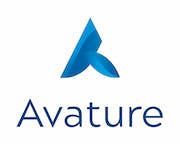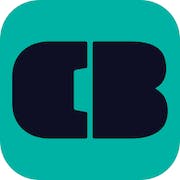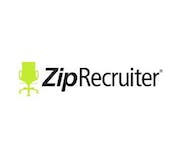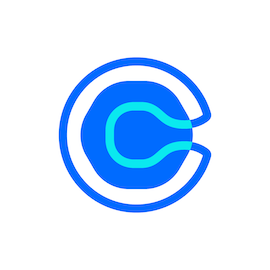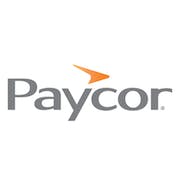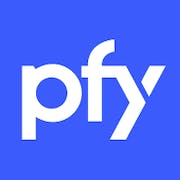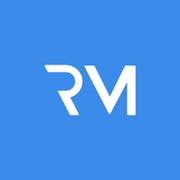Looking for the best recruiting software? Our buyers guide has got you covered. Compare features, pricing and user reviews to find your perfect fit.
Almost half (44%) of US employees were planning to look for a new job last year, which means there’s a huge potential talent pool, but also a lot of resumes to wade through and endless interviews that often leave businesses no closer to finding the right talent.
With the vast array of options on the market, choosing the right software can be a daunting task. But fear not, as this guide is here to provide you with all the information you need to make the best choice for your business. From applicant tracking systems to candidate communication platforms, recruiting software can streamline your hiring process and help you find the perfect fit for your company. So, whether you're a small business owner or a hiring manager at a large corporation, read on to learn about the top features to look for when choosing recruiting software and how it can revolutionize your hiring process.
What is recruiting software?
Recruiting software is a type of technology that helps companies manage the hiring process more efficiently. It's designed to automate and streamline many of the most time-consuming and resource-intensive tasks involved in recruiting, such as sourcing candidates, tracking applications, and scheduling interviews.
The use of this software has become increasingly popular in recent years, as companies have recognized the benefits of adopting more data-driven and technology-enabled hiring practices. Some of the key use cases for it include:
- Sourcing: Recruiting technology can help companies proactively identify and reach out to potential candidates on social media, job boards, and other online platforms.
- Applicant tracking: It can also help companies organize and manage incoming job applications, along with resumes, cover letters and other relevant materials.
- Assessment and screening: The software can help companies screen and assess candidates based on customizable criteria and job-specific requirements.
- Interview scheduling: Recruitment software can help companies streamline the scheduling and coordination of interviews, both in-person and remotely.
- Reporting and Analytics: This software can help companies track key metrics, such as time-to-hire and cost-per-hire and generate reports and visualizations to help optimize the hiring process.
This software is used by a wide range of companies, from small startups to large multinational corporations. Some common industries that rely heavily on recruiting software include tech, finance, healthcare and retail. Ultimately, the decision to adopt recruiting software tools will depend on a company's specific needs and priorities, but for many businesses, it can be a valuable investment that helps attract and retain top talent in a competitive job market.
What are the benefits of recruiting software?
Recruitment software is an indispensable tool for any business looking to streamline and improve its hiring process. It consolidates all recruitment tasks into a centralized platform, from sourcing applicants to managing resumes and scheduling interviews. The software automates the hiring process, eliminates manual data entry tasks and ensures that the company can quickly identify qualified job seekers, saving time and money.
Here are some of the main benefits of using these recruiting tools for businesses:
Time saver
By automating much of the hiring process, businesses can save a significant amount of time. A recruiting platform automates repetitive tasks such as resume screening, interview scheduling and candidate follow-ups, freeing up recruiters to focus on the most important aspects of the hiring process.
Cost-effective
Automating the recruitment process can save businesses a significant amount of money. Not only does it eliminate the need for manual data entry and physical paperwork, it also reduces the amount of time recruiters need to spend on hiring, lowering labor costs.
Improved candidate experience
Applicant tracking systems keep candidates informed about their application status by sending automatic updates. Plus, it ensures that communication between the employer and the candidate is quick and efficient.
Better quality hires
Recruiting software allows businesses to identify qualified job seekers quickly and efficiently. By automating resume screening and scheduling interviews, businesses can ensure that they're only spending time with candidates who meet their qualifications and have a high likelihood of being a good fit.
Improved collaboration
Recruiting software enables recruiters and hiring managers to collaborate more easily. They can set up tasks and schedules, share feedback on candidates, and manage the hiring process without relying on lengthy email threads or in-person meetings.
Overall, this software is a valuable investment for any business looking to boost top-quality talent acquisition efficiently, effectively and cost-effectively. By automating manual tasks, improving collaboration and making the candidate experience more comfortable, businesses that adopt these solutions can stay ahead of their competition while improving their bottom line.
What are the key features of recruiting software?
Recruiting solutions have become an integral part of many companies' human resources strategies. These powerful tools streamline recruitment processes, freeing up valuable time for HR professionals to focus on other critical tasks. Here are ten common features of recruiting software that can help your business attract and retain top talent.
- Applicant tracking system (ATS): Allows for the efficient management of job applications by collecting, storing and filtering resumes and other candidate data.
- Job posting and distribution: Enables businesses to seamlessly post vacancies and job descriptions to various job boards, social media platforms, and other recruitment channels.
- Candidate relationship management (CRM): Helps recruiters build and maintain relationships with potential candidates, improving engagement and reducing prospect drop-off rates.
- Interview scheduling: Simplifies the interview scheduling process by providing automated scheduling, customizable templates and calendar integrations.
- Resume parsing: Automates the resume screening process by extracting key data points, such as relevant experience and education, from candidate profiles and resumes.
- Automated communications: Allows customizable automated messages to be sent to applicants throughout various stages of the recruitment process, improving candidate experience and communication.
- Collaboration tools: Enable multiple team members to work on a single recruitment project and share notes and feedback to ensure thorough screening.
- Analytical reporting: Provides valuable insights into critical recruitment metrics such as time-to-hire, cost-per-hire, applicant source and candidate sourcing/pipeline, helping businesses track their recruitment progress and make data-driven decisions.
- Diversity and inclusion features: Incorporates measures to ensure that unconscious biases are minimized when recruiting, ensuring that the talent pool you're sourcing from is more inclusive and attracting qualified candidates from diverse backgrounds.
- Onboarding and Talent Management: Offers a seamless onboarding process to turn successful applicants into effective team members and provide them with the resources they need for long-term success within an organization.
These are just a few of the many features that recruiting software can offer your business. Adopting recruiting software not only frees up valuable time for HR professionals but also enables businesses to attract top talent, improve the hiring experience and make data-driven recruitment decisions.
Most important considerations when choosing recruiting software
Businesses are always on the lookout for the best talent to join their teams. With the rise of technology, recruiting has become more streamlined and efficient. Recruiting software has made it easier for businesses to attract, interview, and hire top talent. With so many options available in the market, it can be challenging to choose the right one. In this article, we will discuss the factors that businesses should consider when purchasing recruiting software.
Features
The first and foremost factor to consider is the feature set of the recruiting software. Ensure that the software offers features that meet your business's specific needs. For example, if you focus on social media recruitment, ensure that the software can integrate with your existing social media accounts. Look for features such as automated job postings, resume screening, and candidate tracking.
Ease of use
Recruiting software should be intuitive and easy to use. The user interface should be easy to navigate, and the software should not require extensive training to use. This is particularly important if you have a small team and do not have the resources to dedicate to training.
Integration
The recruiting software should integrate with your existing HR tools, such as your applicant tracking system, performance management system, and payroll system. This will ensure that all your HR tools work together seamlessly.
Support
Recruiting is a critical function, and you need a software provider that provides round-the-clock support. Look for a provider that offers phone and email support and has a dedicated support team.
Mobile compatibility
With remote work becoming a norm, recruiting software should be accessible from anywhere. Ensure that the software is mobile compatible, allowing you to access it from your phone or tablet.
Price
Finally, consider the cost of the software. The price of recruiting software varies depending on the feature set, level of support, and scalability. Consider your budget and select a software that offers the best value for money.
In conclusion, recruiting software is an essential tool for any business looking to attract and retain talent. When selecting software, consider the features, ease of use, integration, support, mobile compatibility and pricing. These factors will ensure that you select the right software and enhance your entire recruiting process.
Software trends for recruiting software
Recruitment professionals are constantly seeking ways to streamline their processes and improve their hiring outcomes. Recruiting software is becoming an increasingly essential tool for talent on. Automated recruiting software and predictive analysis will be key features, allowing firms to quickly identify qualified talent while optimizing their strategies.
In addition, software tools that facilitate tracking and communication, as well as personalized experiences for candidates, will become more commonplace. By using these advanced technologies, recruiters will be able to focus on building relationships with both clients and job seekers, all while reducing costs, improving efficiency, and optimizing the hiring process. Embracing these trends will not only help firms to stay competitive, but it will also facilitate improved candidate experiences and ultimately lead to better hiring outcomes.

